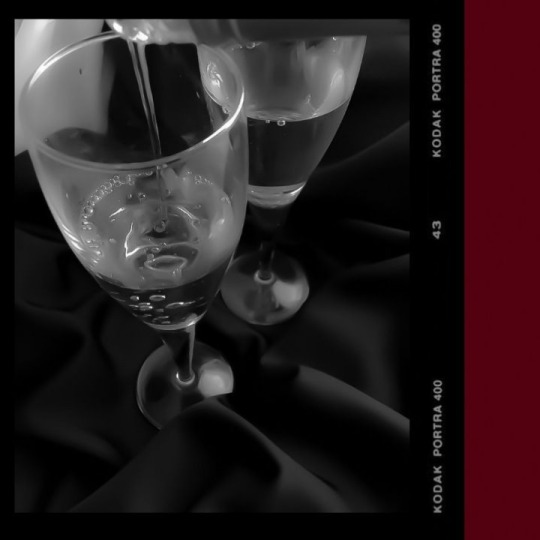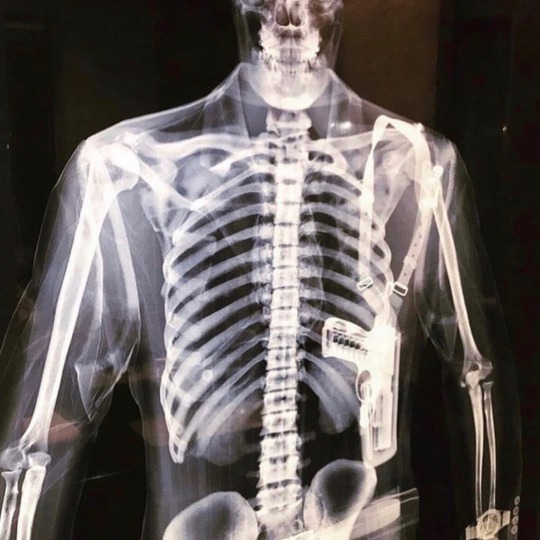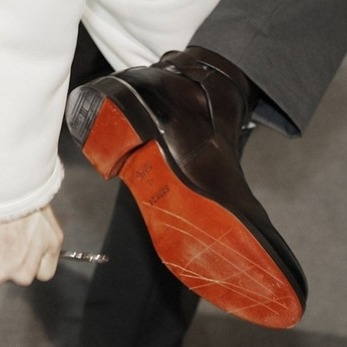Text









ENNEAGRAM TYPE EIGHT : the challenger
-> concerned with control & power
89 notes
·
View notes
Text
Personality type master list:
Enneagram: 8w9 (864) so/sx
Myers-Briggs: ESTP
Zodiac big 6: Sagittarius sun, Gemini moon, Capricorn rising, Sagittarius Mercury, Aquarius Mars, Scorpio Venus
D&D Alignment: Chaotic Neutral
Hogwarts House: Slytherin
Ilvermorny House: Wampus
Patronus: Robin
#mbti#enneagram#zodiac signs#astrology#birth chart#dnd alignments#hogwarts house#estp#8w7#sagittarius#chaotic neutral#slytherin#wampus
12 notes
·
View notes
Text
wampus
“represents the body, favors warriors”










80 notes
·
View notes
Text
The Umbrella Academy: Five [ENTJ]
OFFICIAL TYPING by Charity / The Mod
Functional Order: Te-Ni-Se-Fi

Judging Functional Axis:
Extroverted Thinking (Te) / Introverted Feeling (Fi)
When Five finds out the end of the world is nigh, he not only finds his way back (eventually) by agreeing to work with a time-travel organization, but makes a plan about how to stop it all from happening. Each situation he finds himself in, he gets out of through quick, rational thinking and by “scamming the system” – in other words, using it, without people knowing about it. He shoots of useful messages to assassins to set them against each other, and get them off his tail; he doesn’t tell his family anything, but works behind the scenes to avoid their downfall. He cuts deals with his enemies. Whatever’s happening, Five has “got this.” Though it usually means a high body count, but oh well. That’s the price you pay, right? He shows very little Fi, except in his general concern for the welfare of the people he, you know, cares about. A little. Actually, he shows more fondness for his plastic friend. But… that’s fine. He’s been through a lot.

Perceiving Functional Axis:
Introverted Intuition (Ni) / Extroverted Sensing (Se)
He loves to think ahead of everyone else. He has a clear idea in his head when he comes back of what he wants, and what strings to pull to “change the future.” Five has not really considered his family as part of his vision, so he mostly leaves them out of it and handles things himself. He cleverly figures out how the tubes work – much too fast for his boss to feel satisfied. He instantly figures out they put a tracker in him, and how, when he’s attacked in the diner. He also isn’t above taking risks, doing things himself, changing his mind (sorta) mid-stream, and showing a general willingness to get his hands dirty in a tert-Se way (which he has a leg up on, coz he can teleport. Useful skill. Keeps him alive. Most of the time).

Hogwarts House: Slytherin
House Traits: cunning, resourcefulness, and ambition.
Five doesn’t need you, thanks. He can do this all on his own. He manipulates people. He leaves them out of his plan altogether. He also sees what Allison doesn’t want to admit: their sister is a problem. She needs taken out. Pronto. End of story.

Enneagram: 8w7 sp/sx
Tritype: 853 The Solution Master
Tough. No nonsense. He calls a spade a spade, and an idiot an idiot. Don’t get in his way, because he will trample you, and insult you on his way past. Watch out for the tread marks. It makes him a prickly fellow, un-inclined to open up emotionally to anyone except his plastic friend. And that’s the way he likes it. His brutal responses get him places. And nobody walks away from an altercation with him unscathed. His 7 wing can be ambitious and wants to distract itself with things—enabling him to actually make a “friend” in a post-apocalyptic world. Sure, she can’t talk, but you take what you can get from the rubble. His 5 withdraws to think whenever his aggression fails him. He trusts no one but himself, and tells no one anything. His 3 doesn’t bother with feelings, pushing through them to get the job done. He also has no doubts about his self-esteem. He KNOWS he’s the smartest person in the family. As an sp/sx, he’s a lone wolf, doing things on his own, and never shying away from intensity.
247 notes
·
View notes
Note
Does enneagram tell us what types of people we’d be attracted towards (in any sense but mostly relationship) and if so, could you list a few keywords for what each type is drawn to?
I think if you look inward, think about what, for example, fictional characters you are drawn to, etc., you will notice a pattern of your core type trying to in some way compensate. For example, I am a 6 and I’m most drawn to any character who is protective of his loved ones, because that’s what I would needed to feel safe in a romantic relationship -- a man who I feel safe with, who I could trust to keep our kids and our home and our pets safe, through logical decisions. I’m also very attracted to fictional NTJs because they tend to be specific, focused, and have an end goal in mind, which as a Ne I would find reassuring -- some sense of certainty and an ability to see things through would make me feel safe.
So, think about it.
1 - wants to be good. Will be attracted to responsible, good people. Will have respect for others with as much integrity as they possess; if they marry someone irresponsible or immoral, they will lose all respect for them, but stay in the relationship many times out of a sense of duty / obligation.
2 - wants to be loved. Will be attracted to anyone who pays them positive attention or who seems to need their help; if they marry a ‘taker’ who does not fully appreciate being taken care of, the 2 will become resentful of not being acknowledged and often become manipulative and critical of their SO.
3 - wants to be admired. Will be attracted to and choose someone else based on their level of aesthetic attractiveness and what qualities they have that society will admire; if they marry someone who does not care about these things, the 3 will feel imbalanced and fall deeper into workaholic behaviors to avoid their feelings of frustration.
4 - wants to be rescued. Will be attracted to anyone who seems unattainable, and sometimes have contempt for those who are too easily ‘won over’; if they marry someone intolerant of their tendency to move toward, then against (”I miss you when you are gone, hate you when you are here”) there will be friction that can contribute to their fear of abandonment.
5 - wants to not need anyone. Will be attracted to others of similar intellect and who give them their own space; will demand it, if it is not given (think Tim Burton living in his own house, AWAY from Helena and their kids). If they choose someone too overbearing, will become passive, emotionally distant, and isolated. (A lot of 5s and 2s marry each other and it doesn’t always work out, since the 5 hasn’t learned to give affirmation and will feel ‘invaded upon’ by the 2, who is ‘just trying to help’ but angry about the lack of emotional response.)
6 - wants to feel safe. Will be attracted to decisive people who make them feel protected and secure within the relationship. If the other person attacks them on an emotional level, tries to emotionally manipulate them, or plays games, the 6 will disengage, put up a “I don’t trust you wall” and be emotionally unavailable, leading to an eventual fracturing of the trust relationship, but may stay in a bad relationship for years out of fear of conflict or change.
7 - wants to have fun and be free. Will be attracted to other fun-loving people, go-getters, and funny individuals, but also might be attracted to someone more practical than they are. Conflict may arise over the 7′s unwillingness to commit, tie themselves down, pop the question, get married, or move in together, because of commitment phobia.
8 - wants to be in control. 8s look for people to either protect (soc) or dominate, and once they choose people, they aggressively protect and defend them from all outsiders, but can also be argumentative within the relationship. They will want a partner who screams back at them just as loud -- to an 8, an argument is foreplay, it’s not a serious thing. If they wind up married to a weak partner, the 8 will lose all respect for them and either defend them or pick on them.
9 - wants peace. Will be attracted to people who do not upset them, push them too hard, or threaten their sense of internal balance and comfort. If they wind up married to someone who does those things, they will go numb, emotionally shut down, become passive-aggressive, and refuse to acknowledge the problem -- for example, taking 2 hours to get ready to go somewhere while being mad at their SO and knowing full well their SO likes to be on time, rather than yelling at them for forgetting to do X again.
- ENFP Mod
149 notes
·
View notes
Photo









8: THE CHALLENGER
self-confident, decisive, willful, confrontational
103 notes
·
View notes
Text
Lower Fixes

One of my co-mods asked me to theorize on what the Enneagram types might be like as lower fixes, since they have a minimal impact in your personality.
Core:
1. Everything revolves around perfection, right / wrong, ethics, high standards, out of fear of being bad.
2. Everything revolves around winning people over by being warm and helpful, in a desire to get love, and to avoid fears of being unwanted.
3. Everything revolves around success and achievement, bolstering your successes and hiding your failures, to avoid fears of failure and lack of personal value.
4. Everything revolves around constructing a unique identity built up largely around your deep emotions, to avoid fears of rejection and/or lack of uniqueness making you unlovable.
5. Everything revolves around amassing knowledge and becoming in-depth specialists in individual fields, to avoid your fears of not being able to handle the outside world on your own.
6. Everything revolves around securing yourself and your loved ones, disarming potential enemies, and testing self and others, to avoid your fears of having to make decisions and/or go at life alone.
7. Everything revolves around seeking pleasures, avoiding negativity, and escaping from commitment, out of fear of being trapped and forced to look inward at your demons (which you want to deny exist).
8. Everything revolves around assertiveness and seeking power, picking and winning fights, out of a fear that if you do not, others will control / dominate or defeat you.
9. Everything revolves around maintaining your inner peace, subduing your emotions, and going at life at your own pace, to avoid your fear of conflict and emotional upheaval in yourself and others.

Second Fix:
Supports your dominant fix, and has a strong pull on your personality.
1. Strong desire to do things right, be morally appropriate, above reproach, harsh criticisms of self and others in terms of bad / inappropriate behavior.
2. Strong desire to gain love and acceptance from others, uses helpfulness and kindness to achieve those ends.
3. Strong desire to succeed, and a strong streak of competitiveness, likes to be “the best” at everything.
4. Strong desire for uniqueness, often strong emotions, cannot move forward with situations until these are dealt with, often envious.
5. Strong desire for knowledge and mastery over topics, withdraws from others to learn or problem solve, can be secretive / remote.
6. Strong desire for security and inclusion, uses warmth and testing to determine secure relationships, struggles with strong self-doubt.
7. Strong desire for freedom and fun, often a catalyst for both among their friends, prefers optimistic stories, can panic when they feel trapped.
8. Strong desire for self-assertion and dominance, can become aggressive in pursuing what they want or defending themselves / others, solid presence, no-nonsense.
9. Strong desire for harmony in the environment, can tend toward emotional apathy at times or not move forward quickly, amiable but stubborn when crossed.

Final Fix:
1. Crave perfection, moral integrity, can be critical of self and others.
2. Crave inclusion and being wanted, helps others to achieve it.
3. Crave importance, value, tries to impress others with success, denies mistakes.
4. Crave uniqueness, fears they’ll never find their identity, self-critical.
5. Crave mastery, feels they must problem-solve themselves.
6. Crave security, uses warmth, friendliness, and allies to feel safe.
7. Crave adventure, change, and optimism, avoids the negative.
8. Crave power, control, can be assertive, forceful in their opinions.
9. Crave peace of mind, goes along to get along, tries to be optimistic.
- ENFP Mod
387 notes
·
View notes
Text
The Types as Iconic Dialogue from Memes
Type 1w9 - “One day you will have to answer to a God who isn’t as forgiving as me.”
Type 1w2 - "You could sooner divert a river from its course than deny my nature.“
Type 2w1 - "You have to draw a line in the sand. You have to look inside of yourself and think, ‘What am I willing to put up with today?’”
Type 2w3 - “Heroism requires kindness.”
Type 3w2 - "To become God is the loneliest achievement of all.“
Type 3w4 -"God gave me depression because if my ambitions went unchecked, I would’ve bested him in hand to hand combat by age 16.”
Type 4w3 - "I saw the face of God and it was weeping.“
Type 4w5 - "People say 'phase’ as if impermanence means insignificance; show me a permanent state of self."
Type 5w4 - "Decay exists as an extant form of life.”
Type 5w6 - “One day you will be face to face with whatever being saw fit to let you exist in the universe, and you will have to justify the space you filled."
Type 6w5 - "Can you feel your heart burning? Can you feel the struggle within? The fear within me is beyond anything your soul can make. You cannot kill me in a way that matters.”
Type 6w7 - "God’s dead and soon we will be too.“
Type 7w6 - "The fire of hate might warm you now, but it’s not worth the cold it leaves behind.”
Type 7w8 - "I’ve been through hell and come out singing.“
Type 8w7 - "Hypocrite that you are, for you trust the chemicals in your brain to tell you they are chemicals. All knowledge is ultimately based on that which we cannot prove. Will you fight? Or will you perish like a dog?”
Type 8w9 - “I survived because the fire inside burned brighter than the fire around me.”
Type 9w8 - "Impudent of you to assume I will meet a mortal end.“
Type 9w1 - "Violence for violence is the rule of beasts.”
Source
258 notes
·
View notes
Text
Enneagram Themes

Major Themes of the Three Triads:
The Instinctive Triad: 8, 9 and 1 are concerned with maintaining resistance to reality (creating boundaries for the self that are based on physical tensions). These types tend to have problems with aggression and repression. Underneath their ego defenses, they carry a great deal of rage.
Ego Defense Directions: 8 directs energy outward against the environment. 1 directs energy inward against their internal impulses. 9 directs energy against both inward and outward “threats.”
The Feeling Triad: 2, 3, and 4 are concerned with self-image (attachment to the false or assumed self of personality). They believe that the stories about themselves and their assumed qualities are their actual identity. Underneath their ego defenses, they carry a great deal of shame.
Ego Defense Directions: 2 pretends self-image outwardly to others. 4 presents self-imagine inwardly to themselves. 3 presents self-image to self and others.
The Thinking Triad: 5, 6 and 7 are concerned with anxiety (they experience a lack of support and guidance). They engage in behaviors that they believe will enhance their safety and security. Underneath their ego defenses, they carry a great deal of fear.
Ego Defense Directions: 5 flees inward due to fear of aspects of the outer world. 7s flee outward due to fear of aspects of the outer world. 6 flees inward to avoid external threats and outward to avoid internal fears.
The Hornevian Groups
Indicate the social style of each type and how they get their primary needs met (as indicated to the Triadic Center). The assertive types (3, 7, 8) insist or demand that they get what they want. Their approach is active and direct as they go after what they believe they need. The compliant types (1, 2, 6) all attempt to earn something by placating their super ego to get what they want. They do their best to be “good” to get their needs met. The withdrawn group (4, 5, 9) all withdraw to get what they want. They disengage from others to deal with their needs.
The Harmonic Group
This tells us what attitude the type adopts if it fails to meet its dominant need. It’s how we cope with conflict and difficulty; how we respond when we do not get what we want.
The Positive Outlook Group: 2, 7, 9. They adopt a positive attitude, re-framing disappointment in a positive way. They emphasize the uplifting aspects of life and look at the bright side. They have trouble facing the dark side of themselves; they do not want to look at anything painful or negative in themselves.
The Competency Group: 1, 3, 5. Deal with difficulty by putting aside their personal feelings and striving for objectivity, effectiveness, and competency. They problem solve logically and expect others to do the same. They often have power struggles with the systems and rules around them, since they don’t know how much they want to obey them or rebel.
The Reactive Group: 4, 6, 8. They react emotionally to conflicts and problems and have difficulties knowing how much to trust other people. (“I need you to know how I feel about this.”) When problems arise, they seek emotional responses from others that match their own concern. (“This is really bothering me, it should bother you too!”) They have strong likes and dislikes, and must deal with their feelings before calming down to handle the issue. They struggle to balance their need for independence with a need for others’ support. They are either looking for advice and direction or engaging in rebellion.

Main Themes of the Positive Outlook group:
2: Emphasizes positive self-image (”I am a caring, loving person.”) They focus on their good intentions. Avoids seeing: their own neediness, disappointment, and anger. Problems with needs: overemphasis on the needs of others; neglect of their own needs.
7: Emphasizes positive experiences, enjoyment, activity, excitement, and fun. Avoids seeing: their pain and emptiness; their role in creating suffering for self and others. Problems with needs: overemphasis on their own needs. They easily feel burdened by the needs of others.
9: Emphasizes the positive qualities of others and of their environment. They idealize their world. Avoids seeing: problems with their loved ones or their environment as well as their own lack of development. Problems with needs: feeling overwhelmed by their own needs and the needs of others. They do not want to deal with others.
At a glance: deny that they have any problems.
2: “You have a problem. I am here to help you.”
7: “There may be a problem, but I’m fine.”
9: “What problem? I don’t think there is a problem.”

Main themes of the Competency Group:
1: Emphasizes being correct, organized, and sensible. They focus on standards, improving themselves, and knowing the rules. Manages feelings: by repression and denial. Feelings are channeled into activity, getting things done perfectly. Feelings are also held as a physical rigidity in the body. Relation to systems: 1s want to work with the system. They try to be a “good boy or girl” and are irritated with people who disregard the rules.
3: Emphasizes being efficient, capable, and outstanding. They focus on goals, being pragmatic, and knowing how to present self. Manages feelings: by repression and keeping attention on tasks, staying active. Achievement offsets painful feelings. They look to others for feeling cues. Relation to systems: 3s want to work with the system but also like being outside of it–bending rules and finding shortcuts.
5: Emphasizes being the expert and having deep information. They focus on the process, objective facts, and maintaining clarity and detachment. Manages feelings: by splitting off and abstracting feelings, they stay preoccupied and cerebral as if their feelings were happening to somebody else. Relation to systems: 5s reject the system and want to work on their own, outside of it. They have little patience with rules or procedures.
At a glance: cut off feelings and solve problems logically.
1: “I’m sure we can solve this like sensible, mature adults.”
3: “There’s an efficient solution to this–we just need to get to work.”
5: “There are a number of hidden issues here; let me think about this.”

Main Themes of the Reactive Group:
4: Seeks a rescuer, someone to understand them and support their life and dreams. They want to be seen. Fears: abandonment–no one will care for them; they will not have enough support to find and become themselves. Deals with others by keeping others interested by limiting access, playing hard to get, and holding on to supporters.
6: Seeks both independence and support. They want someone to rely on but they also need to be “the strong one.” Fears: being abandoned and without support, but also becoming too dependent on others. Deals with others by being committed and reliable while trying to maintain their independence; they are engaging but also defensive.
8: Seeks independence and self-reliance. They want to need others as little as possible, to be their own person. Fears: being controlled or dominated by others. Thus, they fear intimacy and becoming vulnerable by trusting or caring too much. Deals with others by keeping up their guard, not letting others get too close, and toughening themselves against hurt and their need for others.
At a glance: react strongly and need a response from others.
4: “I really feel hurt, and I need to express myself.”
6: “I really feel pressured, and I’ve got to let off some steam.”
8: “I’m angry about this and you’re going to hear about it.”

How each type manipulates others:
1: By correcting them, insisting others share their standards.
2: By finding out others’ needs and desires, thus creating dependencies.
3: By charming others, and by adopting whatever image will “work.”
4: By being temperamental, and by making others “walk on eggshells.”
5: By staying preoccupied, and by detaching emotionally from others.
6: By complaining, and by testing others’ commitments to them.
7: By distracting others, and by insisting others meet their demands.
8: By dominating others, and by demanding others do as they say.
9: By “checking out” and by passive-aggressively resisting others.
- The Wisdom of the Enneagram, by Don Richard Riso and Ross Hudson
637 notes
·
View notes
Text
The Enneagram, Simplified
Below is a simplified overview of the Enneagram types and their wings, useful for introducing people to the theory objectively – I tried my best to keep all descriptions unbiased and to-the-point. They should be okay to print, too, depending on the formatting. Translations into other languages are available in the notes.
With that out of the way, the rest is below the cut!
Keep reading
2K notes
·
View notes
Text
I found out my sidereal birth chart and I think it’s way more accurate. What do y’all think of sidereal astrology? I also made a birth chart for my trans “rebirth” (AKA when I first came out). Both are v accurate. Should I share my different birth charts and discuss which one is more accurate?
#zodiac#sagittarius sun gemini moon capricorn rising#Scorpio sun Taurus moon Sagittarius rising#Scorpio sun Scorpio moon Aries rising#sidereal chart#sidereal zodiac
4 notes
·
View notes
Text









scorpio venus
mysterious • possessive • profound
good pairing for: taurus venus, pisces venus, cancer venus and ppl with much earth influence
attracted to: sensuality, deep people/conversations
262 notes
·
View notes
Photo

REQUESTED AESTHETIC
sagittarius sun, gemini moon, capricorn rising.
requested by anonymous
67 notes
·
View notes
Photo

REQUESTED AESTHETIC
sagittarius sun, gemini moon, capricorn rising.
requested by anonymous
90 notes
·
View notes
Text
Enneagram Childhood Wounds
Type 1: These children felt heavily criticized, punished, or not good enough. Household rules may have felt inconsistent. As such they became obsessed with being good/not making mistakes to avoid condemnation. The principle message was: “You must always be better than you are.”
Type 2: These children felt loved only if they were helping or pleasing others, their personal needs felt selfish. As a result they closed off their own needs and feelings and tuned into those of others. Love became defined as giving to others - though the love often didn’t feel received or reciprocated.
Type 3: To the heart - These children felt rewarded only for what they did and how well they did it. their feelings were discounted and ignored, only their performance and what was expected of them mattered. This harmed their ability to love themselves and others. Admiration replaced real love.
Type 4: These children felt abandoned by one or both caretakers. They felt alone, cut off from the source of love for reasons they couldn’t understand. They were not “seen” or mirrored, and felt different from their parents. As a result, they turned inward to their feelings and imagination to cope in isolation.
Type 5: These children received no meaningful interaction, emotion, or affection from caretakers. Or, the child had intrusive, over-controlling parent(s) and felt exposed and defenseless in the face of this intrusion. As a result, they built walls around themselves and retreated to the mental realm.
Type 6: To the trusting nature. These children were raised in an unpredictable situation with no safe place to go. They lost faith they would ever be protected. As such, they turned to their own inner defense of doubting, disbelieving reality and rejecting their own instincts/inner guidance.
Type 7: These children were deprived of nurturing, or it was too-soon removed. They handled this lack by searching for distractions to minimize/repress fear and pain. They decided to focus on positive options and rely on themselves to fulfill their desires and gain a sense of nurturance.
Type 8: These children often grew up in an unsafe environment (emotionally and/or physically) and had to mature way too soon. They didn’t feel safe to show any vulnerability, and may have felt controlled. Weakness was used against them, so they focused only on building their strength.
Type 9: To the gut, the core of being. These children were overlooked or neglected and felt unimportant or “lost.” They were ignored/attacked for having needs or expressing themselves (especially anger) and decided to keep a low profile and instead focus on the needs/experience of others.
(credit to Elan BenAmi, MA, and Rev. Lori Ohlson, MA, LPC)
5K notes
·
View notes
Text
THE ENNEAGRAM INVENTORY
ONES
1. I like to be organized and orderly.
2. It is difficult for me to be spontaneous.
3. I often feel guilty about not getting enough accomplished.
4. I don’t like it when people break rules.
5. Incorrect grammar and spelling bother me a lot.
6. I am idealistic. I want to make the world a better place.
7. I am almost always on time.
8. I hold on the resentment for a long time.
9. I think of myself as being practical, reasonable, and realistic.
10. When jealous, I become fearful and competitive.
11. Either I don’t have enough time to relax or I think I shouldn’t relax.
12. I tend to see things in terms of right or wrong, good or bad.
13. I analyze major purchases very thoroughly before I make them.
14. I dread being criticized or judged by others.
15. I often compare myself with others.
16. Truth and justice are very important to me.
17. I often feel that time is running out and there is too much left to do.
18. I almost always do what I say I will do.
19. I worry almost constantly.
20. I love making every detail perfect.
TWOS
1. I want people to feel comfortable coming to me for guidance and advice.
2. Relationships are more important to me than almost anything.
3. Sometimes I feel overburdened by people’s dependence on me.
4. I have trouble asking for what I need.
5. I crave, yet sometimes fear, intimacy.
6. I am more comfortable giving than receiving.
7. I am very sensitive to criticism.
8. I work hard to overcome all obstacles in a relationship.
9. I try to be as sensitive and tactful as possible.
10. When I am alone I know what I want, but when I am with others, I am not sure.
11. It is very important that others feel comfortable and welcome in my home.
12. I don’t want my dependence to show.
13. Watching violence on television and seeing people suffer is unbearable.
14. Sometimes I feel a deep sense of loneliness.
15. If I don’t get the closeness I need, I feel sad, hurt, and unimportant.
16. Sometimes I get physically ill and emotional drained from taking care of everyone else.
17. I often figure out what others would like in a person, than act that way.
18. I enjoy giving compliments and telling people that they are special to me.
19. I am attracted to being with important or powerful people.
20. People have said I exaggerate too much and am overly emotional.
THREES
1. I am almost always busy.
2. I like to make to-do lists, progress charts, and schedules for myself.
3. I don’t mind being asked to work overtime.
4. I have an optimistic attitude.
5. I go full force until I get the job done.
6. I believe in doing things as expediently as possible.
7. It is important for people to better themselves and live up to their potential.
8. I’m not interested in talking a lot about my personal life.
9. I try not to let illness stop me from doing anything.
10. I hate to see jobs undone.
11. I tend to put work before other things.
12. I can’t understand people who are bored. I never run out of things to do.
13. It is sometimes difficult for me to get in touch with my feelings.
14. I work very hard to take care of and provide for my family.
15. I like identifying with competent groups or important people.
16. I try to present myself well and make a good first impression.
17. Financial security is extremely important to me.
18. I generally feel pretty good about myself.
19. People often look to me to run the show.
20. I like to stand out in some way.
FOURS
1. Being understood is very important to me.
2. My friends say they enjoy my warmth and my different way of looking at life.
3. I can become nonfunctional for hours, days, or weeks when I’m depressed.
4. I am very sensitive to critical remarks and feel hurt at the tiniest slight.
5. It really affects me emotionally when I read upsetting stories in the newspaper.
6. My ideals are very important to me.
7. I cry easily. Beauty, love, sorrow, and pain really touch me.
8. My melancholy moods are real and important. I don’t necessarily want to get out of them.
9. I often long for what others have.
10. I try to support my friends, especially when they are in crisis.
11. I live in the past and in the future more than in present–day reality.
12. I place great importance on my intuition.
13. I try to control people at times.
14. I hate insincerity and lack of integrity in others.
15. I have spent years longing for the great love of my life to come along
16. I focus on what is wrong with me rather than on what is right.
17. I like to be seen as one of a kind.
18. I am always searching for my true self.
19. Sometimes I feel very uncomfortable and different, like an isolated outsider, even when I’m with my friends.
20. When people tell me what to do, I often become rebellious and do, or wish I could do, the opposite.
FIVES
1. I learn from observing or reading as opposed to doing.
2. It’s hard to express my feelings in the moment.
3. I get lost in my interests and like to be alone with them for hours.
4. I usually experience my feelings more deeply when I’m by myself.
5. Sometimes I feel guilty that I’m not generous enough.
6. I try to conceal my sensitivity to criticism and judgment
7. Brash, loud people offend me.
8. Conforming is distasteful to me.
9. I like to associate with others who have expertise in my field.
10. I like having a title (doctor, professor, administrator) to feel proud of.
11. I have been accused of being negative, cynical, and suspicious.
12. When I feel socially uncomfortable, I often wish could disappear.
13. I am often reluctant to be assertive or aggressive.
14. I dislike most social events. I’d rather be alone or with a few people I know well.
15. I sometimes feel shy or awkward.
16. I get tired when I’m with people for too long.
17. I feel different from most people.
18. I feel invisible. It surprises when anyone notices anything about me.
19. I don’t look for material possessions to make me happy.
20. Acting calm is a defense. It makes me feel stronger.
SIXES
1. I am nervous around certain authority figures.
2. I am often plagued by doubt.
3. I like to have clear-cut guidelines and to know where I stand.
4. I am always on the alert for danger.
5. I take things too seriously.
6. I constantly question myself about what might go wrong.
7. I often experience criticism as an attack.
8. I often obsess about what my partner is thinking.
9. I can be a very hard worker.
10. My friends think of me as loyal, supportive, and compassionate.
11. I’ve been told I have a good sense of humor.
12. I follow rules closely (a phobic trait); or I often break rules (a counterphobic trait).
13. The more vulnerable I am in my intimate relationship, the more anxious and testy I become.
14. I tend to either procrastinate or plunge headlong, even into dangerous situations.
15. I am very aware of people trying to manipulate me with flattery.
16. I like predictability.
17. I have sabotaged my own success.
18. I can support people through thick and thin.
19. I like being neat and orderly. It helps me feel more in control of my life.
20. I dislike pretension in people
SEVENS
1. I enjoy life. I am generally uninhibited and optimistic.
2. I don’t like being made to feel obligated or beholden.
3. I am busy and energetic. I seldom get bored if left to do what I want.
4. I often take verbal or physical risks.
5. I usually pick upbeat friends who have similar goals.
6. I’m not an expert in any one thing, but I can do many things well.
7. My style is to go back and forth from one task to another. I like to keep moving.
8. I seem to let go of grievances and recover from loss faster than most people I know.
9. I like myself and I’m good to myself.
10. I like people and they usually like me.
11. I usually manage to get what I want.
12. I value quick wit.
13. I am idealistic. I want to contribute something to the world.
14. I vacillate between feeling committed and wanting my freedom and independence.
15. I am often at ease in groups.
16. When people are unhappy, I usually try to get them to lighten up and see the bright side.
17. I love excitement and travel.
18. Sometimes I feel inferior and sometimes I feel superior to others.
19. I usually way whatever is on my mind. Sometimes it gets me into trouble.
20. I can make great sacrifices to help people.
EIGHTS
1. I can be assertive and aggressive when I need to be.
2. I can’t stand being used or manipulated.
3. I value being direct and honest; I put my cards on the table.
4. I am an individualist and a nonconformist.
5. I respect people who stand up for themselves.
6. I will go to any lengths to protect those I love
7. I fight for what is right.
8. I support the underdog.
9. Making decisions is not difficult for me.
10. Self–reliance and independence are important.
11. I have overindulged in food or drugs.
12. Some people take offense of my bluntness.
13. When I enter a new group, I know immediately who the most powerful person is.
14. I work hard and I know how to get things done.
15. In a group I am sometimes an observer rather than a participant.
16. I like excitement and stimulation. Sometimes I like to spar with people, especially when I feel safe.
17. I am vulnerable and loving when I really trust someone.
18. Overly nice or flattering people bother me.
19. Pretense is particularly distasteful to me.
NINES
1. I often feel in union with nature and people.
2. Making choices can be very difficult. I can see the advantages and disadvantages of every option.
3. It is sometimes hard for me to know what I want when I’m with other people.
4. Others see me as peaceful, but inside I often feel anxious.
5. Instead of tacking what I really need to do, I sometimes do little unimportant things.
6. When there is unpleasantness going on around me, I just try to think about something else for a while.
7. I usually prefer walking away from a disagreement to confronting someone.
8. If I don’t have some routine and structure in my day, I get almost nothing done.
9. I tend to put things off until the last minute, but I almost always get them done.
10. I like to be calm and unhurried, but sometimes I overextend myself.
11. When people try to tell me what to do or try to control me, I get stubborn.
12. I like to be sure to have time in my day for relaxing.
13. Sometimes I feel shy and unsure of myself.
14. I enjoy just hanging out with my partner or friends.
15. Supportive and harmonious relationships are very important to me.
16. I am very sensitive about being judged and take criticism personally.
17. I like to listen and give people support.
18. I focus more on the positive than on the negative.
19. I have trouble getting rid of things.
20. I operate under the principle of inertia: if I’m going, it’s easy to keep going, but I sometimes have a hard time getting started.
2K notes
·
View notes








